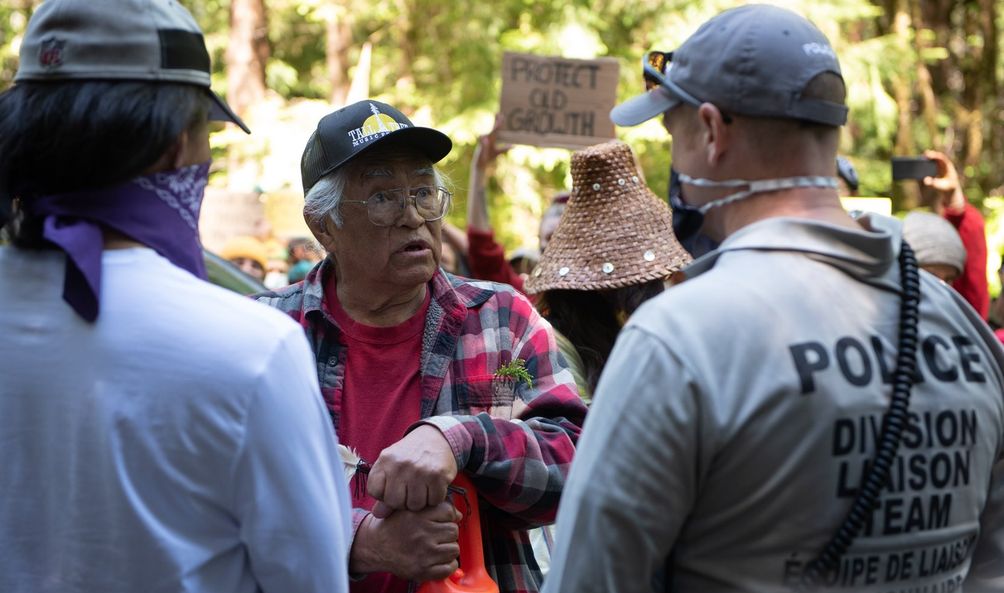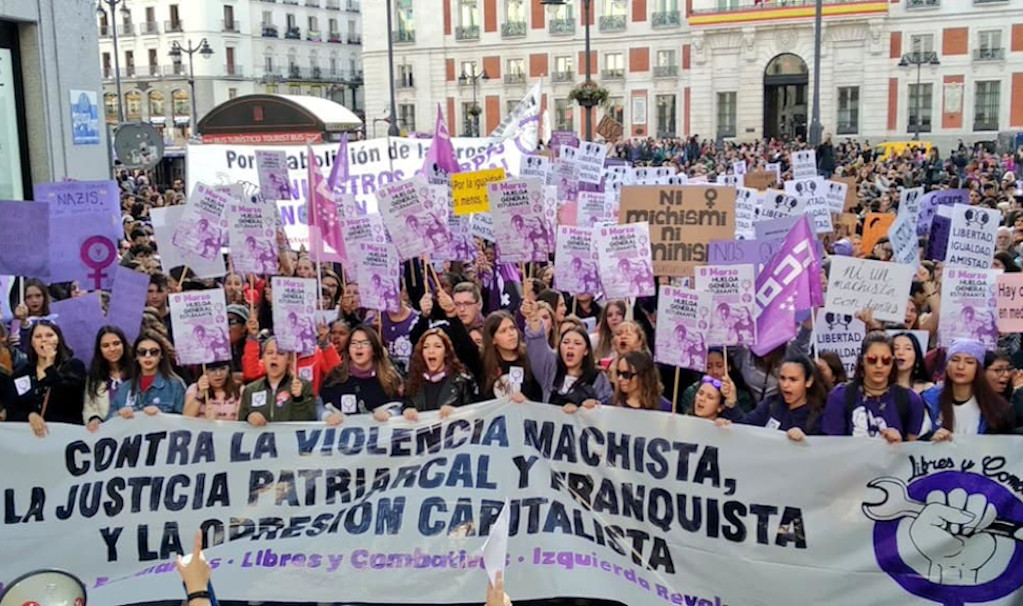Since last August, activists have set up numerous blockades in protest of old growth logging in the Fairy Creek watershed. The self-named Rainforest Flying Squad, a group of volunteer activists and grassroots organizers, set up camp as the BC government granted permits to Teal-Jones, a BC-based logging company, to cut timber in the Fairy Creek area near Port Renfrew on Vancouver Island’s west coast. Home to some of the last remaining old growth, temperate rainforest in the world, this habitat has been called “the rarest of the rare” by environmental scientists and is integral to maintaining BC’s biodiversity already threatened by the climate change.
Forestry accounts for $32 billion of the province’s economy per year, and old growth timber is a coveted commodity; its tight grain makes it ideal for fencing, lumber, and decking as it won’t crack when dried. Old growth also produces the softest toilet paper. Despite Premier John Horgan’s campaign promise to protect old growth, the government continues to issue licenses to harvest big old trees, providing management plans that they claim will protect this valuable resource. However, in a recent independent report, the BC government has been caught over-inflating its reports about the amount of remaining old growth by hundreds of thousands of hectares – in reality, there only remains about 35,000 hectares of true old growth. With over 80% of BC’s old growth having been logged in the last century, this non-renewable resource is in danger of disappearing forever due to mismanagement and corporate greed.
Pacheedaht Elder Bill Jones has expressed support for the work that the Rainforest Flying Squad (RFS) is doing at Fairy Creek. Openly inviting Indigenous and non-Indigenous people alike to stand together in the fight to save BC’s old growth, Jones also called attention to the tension amongst members of Indigenous communities due to differences of opinion on the issue of resource extraction on Indigenous land. The Union of BC Indian Chiefs (UBCIC) passed a resolution in 2020 calling on the province to defer all old growth logging projects. But in April of this year, seven months since the RFS began their protest, Frank Queesto Jones and Chief Councillor Jeff Jones issued a statement calling the blockades “unwelcome, unsolicited involvement [and] interference” on their territory, expressing that the Nation’s ownership of the territory and their role as stewards of the land be respected.
For the Pacheedaht First Nation, in whose territory Fairy Creek lies, they have relied on old growth logging to provide income to their community for decades and renewed their profit-sharing agreement with the province of BC earlier this year. The agreement states that the government must consult with Pacheedaht Nation on all matters of forestry-related development and provide payment to the Nation twice a year. While the agreement is explicitly not a treaty, Pacheedaht Nation is at stage 5 of the BC treaty process and are in negotiations to finalize a treaty. At the same time, the revenue sharing agreement states that the Pacheedaht are bound by an article of “non-interference” – meaning that they can’t support or participate in any actions or campaigns against the logging, even if they wanted to. This puts the Pacheedaht Nation in a tricky situation – any opposition to the logging puts them at a financial disadvantage. And with the Canadian government’s historic maltreatment, neglect, and abuse of First Nations across the country, it is understandable why they would take the opportunity to have a measure of independence over resource extraction on their territory.
The United Nations Declaration on the Rights of Indigenous Peoples (UNDRIP), adopted by the BC government in 2019, contains multiple articles that relate to resource extraction; specifically articles 4, 26, and 32, which all state that Indigenous communities have inherent rights of ownership over their territory and its resources. It would seem that in implementing a profit-sharing agreement, the BC government was keeping its promises to uphold UNDRIP, but the reality is that even with agreements such as this Indigenous communities are always at a disadvantage. Canada’s colonial legacies have had profound social, cultural, spiritual, and economic effects on Indigenous communities – 25% of Indigenous adults and 40% of Indigenous children live in poverty. Almost 40% of Indigenous people don’t have food security, and 73% of First Nations’ water systems don’t provide clean water to their communities. For many Indigenous nations, they are faced with an impossible choice – either partner with the colonial state and receive some compensation for the resources extracted from their territory or continue to live with the effects of the ongoing oppression at the hands of the Canada’s neocolonial government.
In April of this year, the BC Supreme Court granted an injunction against the land defenders demanding that they clear out and allow Teal-Jones to access the watershed. The RCMP was called in to enforce the injunction. With dozens of arrests in the past few weeks, the police have now created a “media exclusion zone,” preventing media coverage of the action on the front lines and eliciting legal action from a coalition of Canadian journalists. Footage of police violence and (illegal) arrests of legal observers continue to circulate over social media platforms while the RCMP muscle protects the private interests of the capitalist class and the colonial project of Canada.
The struggle at Fairy Creek is for more than just trees – it is the struggle of everyday people, fighting for a future where our planet’s most valuable resources aren’t sold off and carted out of town by the highest bidder. We need to take BC’s industries out of the hands of private companies like Teal-Jones, and end Canada’s neo-colonial actions on Indigenous territory across the land. Join the fight for a socialist transformation of society, join Socialist Alternative!


